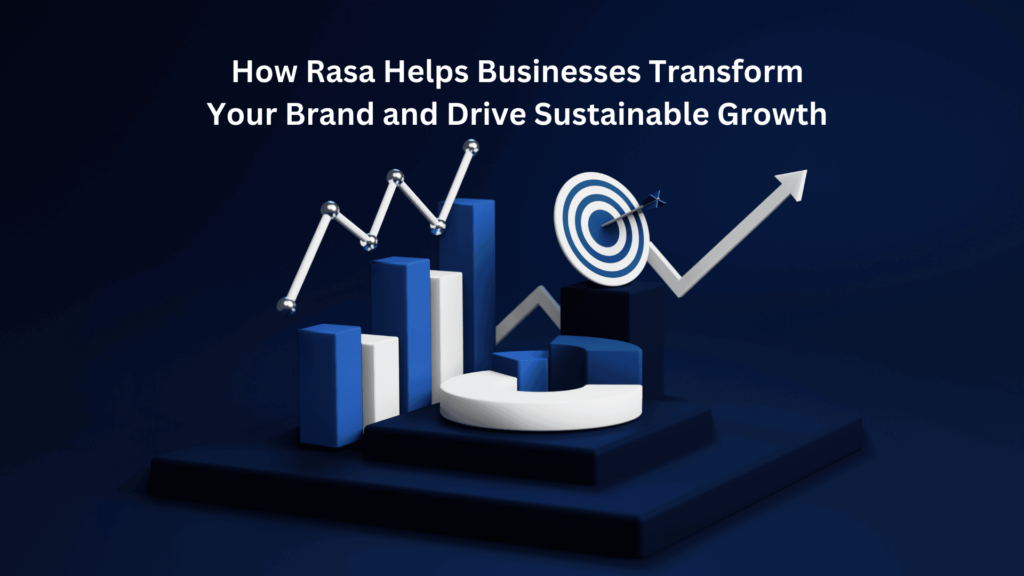Business Computer Information Systems (BCIS) is a dynamic and ever-evolving field that bridges the gap between business and technology. With the increasing demand for professionals who can integrate IT solutions into business processes, BCIS programs are becoming increasingly popular among students and working professionals. Whether you’re looking for a short-term course to upskill or a doctoral program to dive deep into research, this guide covers all the options available in BCIS.
What is Business Computer Information Systems?
BCIS focuses on leveraging technology to solve business problems and improve organizational processes. It combines knowledge of business practices with technical expertise in areas like information systems, data analytics, cybersecurity, and project management. Professionals in this field play a critical role in enhancing productivity, enabling data-driven decisions, and fostering innovation.
This guide explores the most valuable BCIS courses that can enhance your career prospects and business acumen.
Short-Term Courses
Short-term courses are ideal for professionals looking to enhance specific skills or for beginners exploring the BCIS field. These courses are often flexible, affordable, and focus on practical knowledge.
- Foundations of Information Systems for Business
- An online course introducing key concepts in business information systems.
- Duration: 4-6 weeks.
- Offered by Coursera.
- Business & Systems Analysis
- A short course focusing on business and systems analysis, helping learners understand how to design and implement effective systems.
- Duration: 2 weeks.
- Offered by the University of Pretoria.
- Computer Information Systems – Business IT Fundamentals
- A short-term technical certificate from Lorain County Community College, covering essential IT knowledge.
- Duration: 8-12 weeks.
- Offered by LCCC.
- Introduction to Information Systems for Business Specialization
- A series of courses designed to introduce the fundamentals of information systems in a business context.
- Duration: Self-paced.
- Offered by Coursera.
Online Programs
Online programs offer flexibility for working professionals and those unable to attend on-campus classes. These programs cater to different levels of expertise, from undergraduate to doctoral studies.
- Bachelor of Arts in Business Administration with a Concentration in Computer Information Systems
- Focuses on technology solutions for business challenges, preparing students for entry-level positions in BCIS.
- Institution: New England College.
- Learn more.
- Bachelor of Science in Computer Information Systems
- Covers the integration of business and technology to solve organizational challenges.
- Institution: Florida Tech.
- Learn more.
- Doctor of Business Administration (DBA) – Information Systems
- An online doctoral program focusing on combining business practices with information systems.
- Institution: Liberty University.
- Learn more.
- Online Ph.D. in Information Systems
- Offers specializations in areas like cybersecurity, analytics, and advanced IT systems.
- Institution: Dakota State University.
- Learn more.
Bachelor’s Degree Programs
Bachelor’s programs in BCIS provide a strong foundation in both business principles and technical skills. These programs prepare students for roles such as systems analysts, IT managers, and business analysts.
- Bachelor of Science in Business Computer Information Systems
- A comprehensive program combining business and IT coursework.
- Institution: University of North Texas (UNT).
- Learn more.
- Bachelor of Science in Information Systems
- Focuses on integrating business strategies with IT solutions.
- Institution: Arizona State University.
- Learn more.
- Bachelor of Business Administration in Computer Information Systems
- Designed to teach technology solutions for complex business challenges.
- Institution: Texas State University.
- Learn more.
- Bachelor of Science in Computer Information Systems and Technology
- Offers a blend of IT and business fundamentals.
- Institution: UT Dallas.
- Learn more.
Master’s Degree Programs
Master’s programs in BCIS are perfect for professionals seeking leadership roles in IT or specializing in niche areas like data analytics or cybersecurity.
- Master of Science in Information Systems and Technologies
- A STEM-designated program focusing on advanced IT integration and analytics.
- Institution: UNT.
- Learn more.
- Master of Business Administration in Information Systems
- Combines strategic management and IT expertise.
- Institution: Baker College.
- Learn more.
- Master of Science in Computer Information Systems & Business Analytics
- Focuses on integrating business intelligence with IT systems.
- Institution: West Texas A&M University.
- Learn more.
- Master of Science in Information Systems
- Emphasizes IT integration and advanced business strategies.
- Institution: Northeastern University.
- Learn more.
Doctoral Programs
Doctoral programs in BCIS are research-intensive, preparing students for academia or high-level industry roles. They often focus on solving complex IT problems and advancing theoretical knowledge in the field.
- Ph.D. in Business Computer Information Systems
- Focuses on advanced research in BCIS, preparing graduates for academic and industry leadership roles.
- Institution: UNT.
- Learn more.
- Ph.D. in Management Science and Analytics
- Explores advanced research methods in analytics and information systems.
- Institution: Illinois Institute of Technology.
- Learn more.
- Ph.D. in Information Science and Technology
- Prepares students for research roles in information systems and technology.
- Institution: Syracuse University.
- Learn more.
- Ph.D. in Business Administration with a Concentration in Information Systems
- Prepares students for academia and research careers.
- Institution: University of Texas at Arlington.
- Learn more.
- Online Ph.D. in Information Systems
- Offers specializations in areas like security, analytics, and IT innovation.
- Institution: Dakota State University.
- Learn more.

Specialized BCIS Courses to Consider
Database Management Systems
Database management is the backbone of modern business operations. A comprehensive database management course covers:
- Relational database design and normalization.
- SQL for data manipulation and queries.
- Database security and access control.
- Business intelligence and reporting tools.
- Real-world applications in inventory, customer relationship management, and enterprise resource planning.
Business Systems Analysis and Design
This foundational course teaches you how to analyze business requirements and design appropriate technological solutions. Key components include:
- Requirements gathering and documentation.
- Process modeling and workflow analysis.
- System design methodologies.
- Project management principles.
- Change management and implementation strategies.
Enterprise Resource Planning (ERP) Systems
Understanding ERP systems is crucial for modern business operations. This course typically covers:
- Integration of business processes across departments.
- Major ERP platforms (SAP, Oracle, Microsoft Dynamics).
- Implementation and customization strategies.
- Business process optimization.
- Data flow and system architecture.
Business Analytics and Decision Support Systems
This course combines business intelligence with practical decision-making tools:
- Data analytics and visualization.
- Statistical analysis for business decisions.
- Predictive modeling and forecasting.
- Business performance metrics.
- Risk analysis and decision support frameworks.
Cybersecurity for Business
With increasing digital threats, cybersecurity knowledge is essential:
- Risk assessment and management.
- Security policies and compliance.
- Data protection strategies.
- Incident response planning.
- Privacy regulations and requirements.
Cloud Computing and Business Applications
Cloud technologies are transforming business operations:
- Cloud service models (SaaS, PaaS, IaaS).
- Cloud migration strategies.
- Cost analysis and optimization.
- Integration with existing systems.
- Security considerations in cloud environments.
E-Commerce and Digital Business
Understanding digital business models is crucial in today’s economy:
- E-commerce platforms and technologies.
- Digital marketing integration.
- Payment systems and security.
- Customer experience optimization.
- Mobile commerce strategies.
Emerging Technologies in Business
Stay ahead with knowledge of cutting-edge technologies:
- Artificial Intelligence and Machine Learning applications.
- Blockchain for business.
- Internet of Things (IoT) integration.
- Robotic Process Automation (RPA).
- Virtual and Augmented Reality in Business.
Key Considerations When Choosing BCIS Courses
- Industry Relevance
- Look for courses that align with current industry trends and employer demands. Courses should offer practical, hands-on experience with contemporary tools and technologies.
- Certification Preparation
- Many courses should prepare you for professional certifications from organizations like CompTIA, Microsoft, or Oracle, adding valuable credentials to your resume.
- Project-Based Learning
- The best courses incorporate real-world projects and case studies, allowing you to apply theoretical knowledge to practical business scenarios.
- Faculty Expertise
- Seek courses taught by instructors with academic expertise and industry experience, ensuring a balance of theoretical knowledge and practical insights.

Conclusion
Whether you’re starting your educational journey or looking to advance your career, the Business Computer Information Systems field offers diverse opportunities. From short-term courses to doctoral research, BCIS programs cater to a wide range of interests and career goals. The key to success lies in selecting courses that teach fundamental principles and provide hands-on experience with current technologies and methodologies.
The most effective BCIS education combines technical proficiency with business acumen, preparing you for the challenges of digital transformation. Consider your career aspirations, industry trends, and the rapid pace of technological change when choosing your educational path. Remember that the best programs offer flexibility to adapt to emerging technologies while maintaining strong foundational principles.
As you explore the options listed above, focus on finding programs that align with your aspirations and provide practical, industry-relevant experience. Your investment in BCIS education is an investment in your future in this dynamic and rewarding field. Start your journey today and position yourself for success in the digital business landscape of tomorrow.
Frequently Asked Questions (FAQ)
What is BCIS, and why is it important?
BCIS (Business Computer Information Systems) is a field that combines business strategies with technology to solve organizational problems, improve productivity, and enable data-driven decision-making.
What career opportunities are available for BCIS graduates?
Careers include systems analysts, IT managers, business analysts, data analysts, cybersecurity specialists, ERP consultants, and more.
Are there online BCIS programs for working professionals?
Yes, many institutions offer flexible online BCIS programs, including bachelor’s, master’s, and doctoral levels.
What skills will I gain from a BCIS program?
Skills include database management, business analytics, cybersecurity, project management, system design, and understanding emerging technologies.
Do BCIS programs prepare students for industry certifications?
Many programs are designed to prepare students for certifications such as CompTIA, Microsoft Azure, Oracle Database, and more.
What are some specialized areas within BCIS?
Specialized areas include cloud computing, cybersecurity, ERP systems, business analytics, and e-commerce.
Can I transition to a BCIS program from a non-technical background?
Yes, many programs offer foundational courses to help students from non-technical backgrounds transition smoothly.
What is the difference between BCIS and Computer Science?
BCIS focuses on applying technology in business contexts, while Computer Science emphasizes theoretical and technical aspects of computing.
How long does it take to complete a BCIS program?
Bachelor’s programs typically take 4 years, master’s programs 1-2 years, and doctoral programs 3-5 years.
Are internships a part of BCIS programs?
Many BCIS programs include internships or capstone projects to provide practical, hands-on experience.



